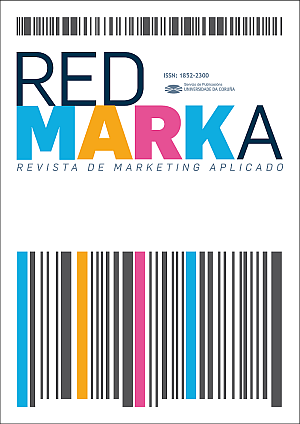The corporate social responsibility as encounter point
Main Article Content
Abstract
The Corporate Social Responsibility (CSR) is a discipline under construction and it comes with great contributions and also questions to be resolve. This article invites to reflect on any of these questions, analyzes the discipline’s situation, as well as role of the terminology and language environment of CSR in the context of the organizations. It proposes the use of an standardized terminology inside the company or institution as a tool for managing relations with interest groups and society, that tries to find a better understanding and a for the smooth running of each company or specific institution, as well as for the corporate and institutional sustainability. The language’s management is an important part for the optimal use of intangible assets and of any organization'sintellectual capital. The company should not evolve a change in perspective and management model, but towards a new role that can be beneficial for themselves, for stakeholders and society in general, it should aim to be a "citizen enterprise". But it is clear that for both of business and institutions, CSR is a path that it should be done step by step. There is no standardized models or pure stadiums to follow them in the same way. It is important that each finds its model, following it getting in touch with the stakeholders and society by means of a transparent and accountable communication.
Keywords:
Downloads
Article Details
References
Aguadero, F. (1993). Comunicación Social Integrada. Un reto para la organización. Ciencia 3, Madrid.
Aguadero, F. (2003). La Sociedad de la Información. Vivir en el siglo XXI. Acento Editorial, Madrid.
Aguadero, F. (2009). Innovación y Sostenibilidad. Ciencia 3, Madrid.
AECA (2003). Marco Conceptual de la RSE, AECA, Madrid.
Archel, P. y Larrinaga, C. (2005) Limites de la información de sostenibilidad: entidad, devengo y materialidad. AECA. Madrid.
Brooking, A. (1997). El capital intelectual. Principal activo de las empresas del tercer milenio, Paidós, Barcelona.
Castelló, I. y Lozano J. M. (2009). De la gestión del riesgo a la empresa ciudadana: los estadios de evolución de la RSE, ESADE, Barcelona.
Comisión Europea (2001). Libro verde. Fomento marco europeo para la RSE, Bruselas.
Lizcano, J. L. y Nieto, P. (2006). La semántica de la responsabilidad social corporativa. AECA, Madrid.
Lizcano, J. L. y Moneva, J. M. (2004). Marco conceptual de la responsabilidad social corporativa. AECA. Madrid Ministerio de Trabajo y Asuntos Sociales (2005). La RSE. Diálogo social, Madrid.
Picht, H. (1994). “Terminología para la empresa y la industria”, III Simposio Iberoamericano de Terminología, Riterm: Terminología y Desarrollo, Unión Latina, Buenos Aires
Popp, C. (1994). “Bancos de datos terminológico para la industria petrolera: una experiencia argentina”, III simposio Iberoamericano de Terminología, Riterm: Terminología y Desarrollo, Unión Latina, Buenos Aires.






